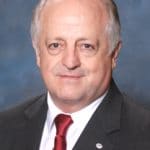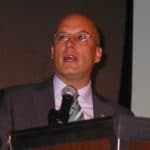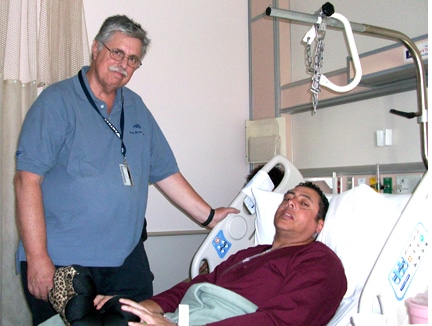It is said by some opinion leaders and decision makers that labor unions are on the decline — that labor unions have become irrelevant in our society and ineffective in influencing public policy.
Recent events in Ohio and Wisconsin properly send such notions to the rubbish bin.
Recall that political extremists in both states used extraordinary tactics to muscle through legislation stripping public employees of their collective bargaining rights.
It was the first step toward weakening the link between workers and labor unions – the first step toward privatizing Social Security, Railroad Retirement and Medicare, weakening workplace safety regulations, and returning to the days of take-it-or-leave-it offers by employers to their workers.
What union-busting lawmakers did not expect is the public backlash generated by organized labor and its members, whom they thought were so weak and irrelevant that they would retreat with barely a whimper.
Oh, yeah?
In the wake of the Ohio and Wisconsin assaults on collective bargaining rights, union brothers and sisters worked collectively and tirelessly to educate the media and the public – through, for example, the UTU Collective Bargaining Defense Fund — about the assault launched by political extremists on middle-class values.
First by the hundreds, then the thousands, then the tens of thousands, and then by the hundreds of thousands did citizens respond to the messages of union brothers and sisters. The outrage initially was expressed in huge and loud rallies around the states. Then came the action.
In Ohio, UTU members joined with brothers and sisters in other labor organizations to launch a petition drive to put the union-busting legislation on hold pending a voter referendum in November. With Ohio State Legislative Director Glenn Newsom coordinating the efforts, members from 22 UTU locals in Ohio fanned out across the state seeking signatures on the petitions. They were joined by brothers and sisters from other labor organizations.
To succeed, 231,000 voter signatures were required. Five times that number — more than 1.2 million voters – signed the petitions.
You can be certain that the number of signatures obtained on these petitions is sending waves of remorse through the ranks of those who voted with the political extremists. After all, they, too, must face the voters.
In Wisconsin, meanwhile, petition drives coordinated by State Legislative Director Tim Deneen – and other labor organizations — are forcing many of the political extremists responsible for the anti-union legislation in that state to face recall elections in July and August. By the scores – and of this you can be certain — lawmakers in Wisconsin are discussing how to separate themselves from the anti-union political extremists facing recall, and regain the support of voters.
On July 5, International President Mike Futhey will hold, via telephone conference call, town hall meetings with Ohio and Wisconsin UTU members to discuss the next steps to ensure voter repeal of the Ohio legislation in November, and the recall of the anti-union Wisconsin lawmakers in July and August.
When union brothers and sisters act together in solidarity, organized labor proves not just to be relevant, but to be darn effective in influencing public policy.
Need we say more as to why UTU members should donate to the UTU Collective Bargaining Fund, and to the UTU PAC, which helps to elect and re-elect union-friendly lawmakers at the state and federal level?
Ok, we will say just a few more words: The jobs and economic futures you save through these actions may well be your own jobs and the economic futures of your families.
To learn more about the UTU Collective Bargaining Defense Fund, click on the following link:
https://www.smart-union.org/collective-bargaining-defense-fund/
To learn more about the UTU PAC, click on the following link:
https://www.smart-union.org/td/washington/utu-pac/



